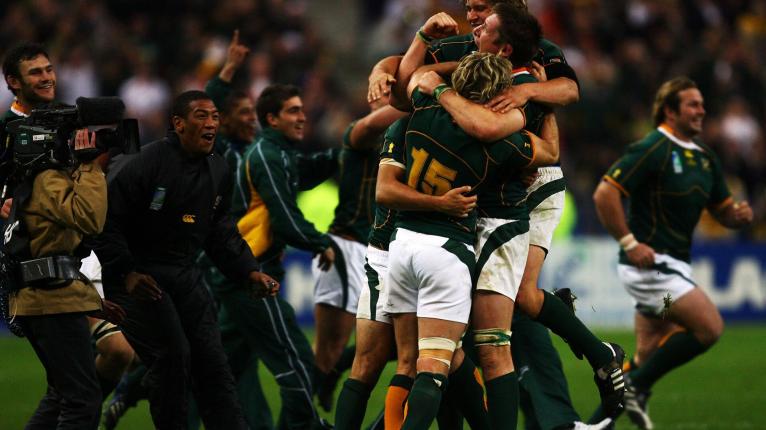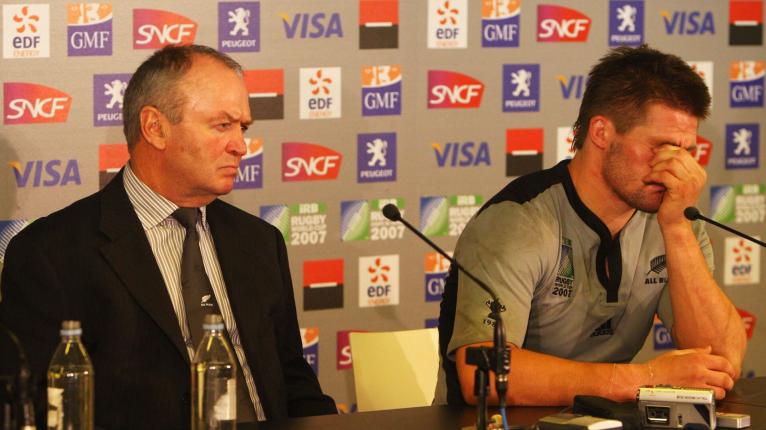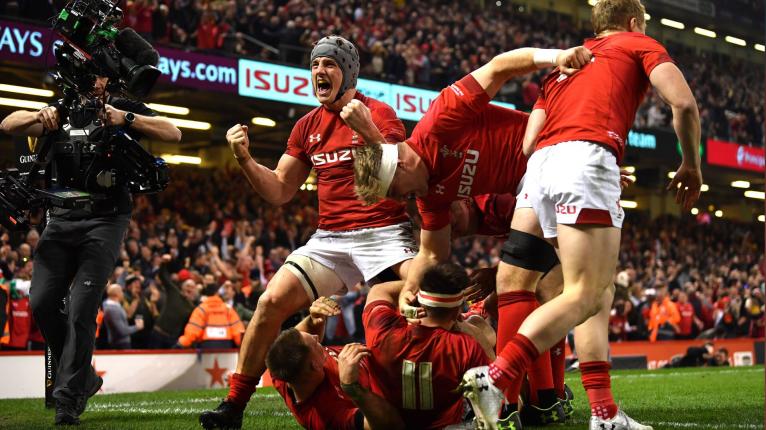Since when did test matches not matter?

When World Rugby were playing with the idea of introducing a season long competition to the international rugby scene, there was reasonably widespread outrage.
Two of the biggest points of contention were the exclusion of top performing tier two Southern Hemisphere nations in favour of other less deserving (but money-rich) sides, and the potential introduction of promotion and relegation to the Six Nations.
The other issue was that people quite rightly took umbrage to the idea that some higher-ups seemed to be suggesting that test matches lacked purpose if there was no overall prize at the end of the season.
Unlike the round ball code, where internationals are very much considered friendlies unless there’s a major trophy on offer such as the European Cup, rugby has always considered international matches the peak of the game.
Professionalism, however, has slowly but surely changed things.
World Cup state of mind
The World Cup, since its inception, has widely been considered the pinnacle of professional rugby. World Rugby rankings may get some time in the limelight when there are no major competitions taking place, but you can bet that more people remember who won the 2007 Rugby World Cup than which team spent the three years preceding the competition at the top of the rankings.
Still, while the World Cup may have been the peak of the game, individual test matches were still incredibly important.

We’re now reaching a point, however, where games between top-tier teams and fierce rivals are losing their lustre and importance because they’re effectively being used as warm-ups and trials for the big event.
Earlier this year, Steve Hansen was very quick to point out that the World Cup was the priority this year and everything leading up to it wouldn’t matter in the greater scheme of things.
“If we don’t win [The Rugby Championship], we won’t lose any sleep over that,” Hansen said of the competition that was once considered the pinnacle of South Hemisphere international rugby.
“We want to win the Bledisloe Cup, for sure, and want to win the World Cup.
“Along the way we have to make some sacrifices to do that and we may have to take some risks … but hopefully we’ll get the rewards.”
In 2011 and 2015 the All Blacks ceded the Rugby Championship but still went on to win the World Cup, but that doesn’t mean those tournaments couldn’t have been won as well as the top prize.
Imagine the likes of former coaches Bryan Lochore, Alex Wylie or John Hart suggesting that they wouldn’t lose sleep over suffering a defeat to the Springboks or the Wallabies.
The problem with professional rugby right now is that there’s always something bigger to prepare for.
Dominated by future thought
A large proportion of the discussion that comes out of any provincial, club or Super Rugby match simply revolves around which players have advanced their cases for national selection.
We’re now reaching a point where international matches themselves are only being assessed within the sphere of the World Cup.
That’s not the fault of the coaches, however – they know that they’ll be judged not on their overall records but on their performances at the World Cup. This is particularly true when it comes to the coaches of the top teams. The rhetoric around coaches of England, South Africa and New Zealand seems to only concern whether or not they brought home the William Webb Ellis Cup during their tenure.

Sir Graham Henry is one of the most successful All Blacks coaches in rugby history. In his first four years in the job, Henry lost just six matches from 48 played, giving him an 88% success rate. That would have made him the most successful All Blacks coach ever who had been in control for more than 15 matches.
Henry’s All Blacks were knocked out of the 2007 World Cup in the quarter-finals by France (New Zealand’s worst ever finish) and Henry almost lost his job because of it. Thankfully, he didn’t – and he went on to coach the All Blacks to a 2011 title.
There’s reason to rate the World Cup as a greater accomplishment than other tournaments, but that doesn’t mean everything should be pushed to the side to accommodate for it.
Using massive fixtures as simple warm-ups
Perhaps the greatest insult is that matches which were once considered exciting, impassioned fights to the death are now being billed as mere ‘warm-ups’.
Until 2003 Wales and England had played each another only once every year since 1881. It was one of the biggest, annual matches in the sporting calendar. In 2003, they did battle three times: once in the Six Nations, once as warm-up for the World Cup, and one in the showpiece tournament. In 2011 they again had three matches whilst in 2007 and 2015 they played each other twice.
This year, the British rivals will play two warm-up matches and could then face off again in either the quarter-finals or grand final of the World Cup. Factor in the Six Nations epic earlier this year and we could be set for four games between the two sides.

Whilst it’s always going to be easy to get excited by matches between England and Wales, the magnitude of the clash certainly loses some of its character when we’re seeing it happen so many times in one calendar year.
People were worried that the Nations League was going to undermine the World Cup – but that’s exactly what the World Cup has already done to other competitions and other test matches.
That’s not to say that there isn’t still a huge amount of interest in these games. International rugby has always been the peak of the sport and the World Cup is the peak of international rugby. The players themselves won’t ever feel content after a loss just because a match was a warm-up – but that’s an attitude that needs to be maintained by coaches, union and fans alike.
We’re not yet at a point where individual matches have lost their spark. Test matches are still passionate, brutal affairs – but professionalism has brought with it a cost. If the eyes are always on the prize at the end of the four-year cycle then we’re at risk of seeing regular international fixtures lose their importance in the rugby calendar, which would be a huge shame.




















































